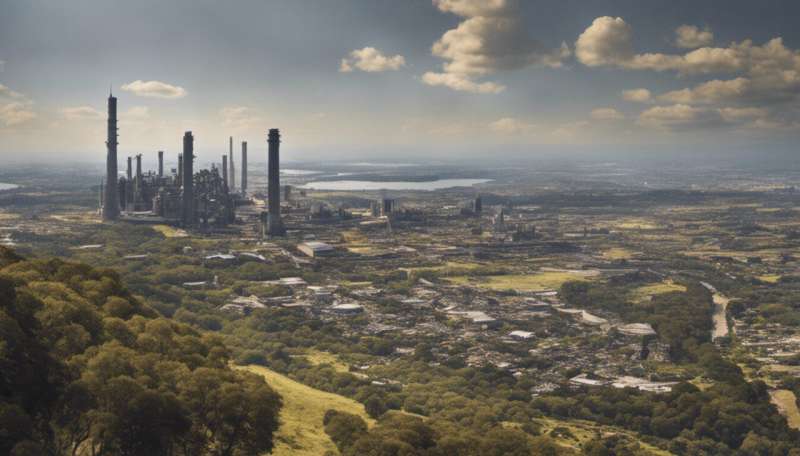Climate change expert: Australia will go nuclear by 2030

A University of Adelaide scientist believes it is inevitable that Australia will become a user of the world's most advanced nuclear power technology, if the country is serious about cutting carbon emissions.
Professor Barry Brook, Director of Climate Science at the University of Adelaide's Environment Institute, says Australia will eventually turn to nuclear power to meet our sustainable energy needs - and when we do, we will choose to focus on next-generation nuclear technology that provides major safety, waste and cost benefits.
Speaking on the eve of World Environment Day (5 June), Professor Brook says: "Coal, oil, and natural gas are the main cause of recent global warming, and these fossil fuels must be completely replaced with clean sustainable energy sources in the coming decades if serious climate change impacts are to be avoided.
"One particularly attractive sustainable nuclear technology for Australia is the Integral Fast Reactor (IFR). Although the scientific community has known about the benefits of IFR-type designs for many years, there are currently none in commercial operation because the energy utilities are typically too risk averse to 'bet on' new technologies. This is a wasted opportunity for Australia and for the rest of the world.
"Integral Fast Reactors are much more efficient at extracting energy from uranium, can use existing nuclear waste for fuel, produce far smaller volumes of waste that does not require long-term geological isolation, and can be operated at low cost and high reliability. They are also inherently safer than past nuclear reactors due to passive systems based on the laws of physics," Professor Brook says.
"In order to re-start the nuclear power debate in Australia, it is best to have a solution that overcomes as many public objections as possible: safety, constraints on uranium supplies, long-lived waste, cost, and proliferation. The IFR technology offers a vast improvement in all of these areas."
Professor Brook's forecast timeline for nuclear power in Australia:
2020 - Public and political debate heightens as need for reliable low-carbon electricity mounts
2025 - First reactor contracts issued, Small Modular Reactors (SMR) built in outback mining sites
2030 - 3 GWe (gigawatt electrical) of nuclear power connects to national electricity grid
2040 - Up to 5 GWe of new capacity being installed per year
2050 - A total of 30-50 GWe installed, located at a dozen 'energy park' sites and various remote areas
2100 - >100 GWe installed for total energy displacement, including replacing oil and gas needs
Professor Brook, a professional ecologist and conservation biologist, has also built an international reputation as a commentator on sustainable energy and the potential benefit of nuclear fission in curbing climate change.
He was the first Australian appointed to the international selection committee of the Global Energy Prize. This month he will be a guest at the prize ceremony in Saint Petersburg, where Russian President Vladimir Putin will present the $1.2 million prize to the 2012 laureates.
Provided by University of Adelaide

















